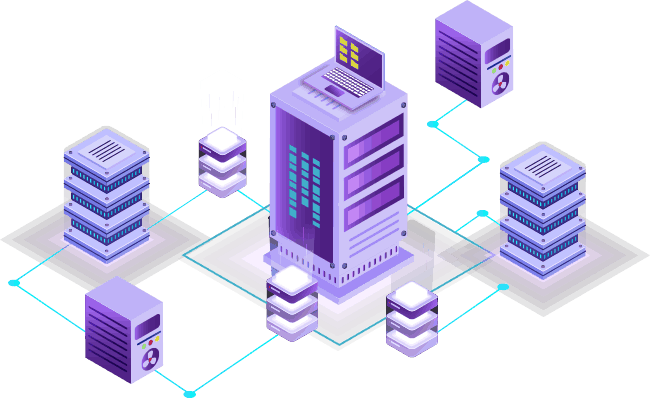Currently Empty: 0.00 €
ONIE Cheat Sheet
Discover essential ONIE commands to enhance your networking skills.
Perfect for both beginners and pros, start exploring now!
Perfect for both beginners and pros, start exploring now!
ONIE Cheat Sheet Commands
ONIE provides a flexible, scalable, and vendor-neutral solution for the installation and management of network operating systems on a variety of hardware platforms.
To assist you, we’ve created a comprehensive ONIE Cheat Sheet for your network or system management tasks. No more searching the internet for Linux commands—everything you need is right here. This cheat sheet will help you perform configuration tasks efficiently, much like other resources such as SONiC or ONiE Cheat Sheets.
Configuration commands
- onie-discovery-stop
- onie-discovery-start
- onie-nos-install
- onie-sysinfo
- onie-boot-mode
- onie-boot-next
- onie-bootreason-save
- onie-syseeprom
This command stops the ONIE discovery process, which is used to discover and provision network operating systems
This command starts the ONIE discovery process, which searches for available network operating system images on the network
This command installs a network operating system image onto the system. This command requires the path to the NOS image file
This command displays system information such as the system manufacturer, model and serial number
This command displays the current boot mode of the system. The boot mode can be set to ONIE, GRUB, or the default boot mode for the installed NOS
This command sets the next boot image for the system. This cam be useful for switching between different operating systems or booting from image
This command saves the current boot reason for the system. This can be useful for diagnosing boot-related issues
This command used to display or update the ONIE system EEPROM information on a network switch running ONIE
Deprecated Commands
Old Command Name
New Command Name
ONIE
The command names listed here are deprecated.
They still exist but are simply symbolic links to the corresponding command listed above.
- install_url
- update_url
- support
- onie-discovery-start
- onie-discovery-stop
- onie-nos-install
- onie-self-update
- onie-support
- onie-start
- onie-stop
- Login: root
- Password: blank
Core Features of ONIE (Open Network Install Environment)
Universal Boot Loader
ONIE acts as a universal boot loader for network switches, providing a standardized environment for network operating systems (NOS) installation.
NOS Agnostic
It is designed to be independent of any specific network operating system, enabling various NOS vendors to deploy their software on hardware platforms that support ONIE.
Discovery and Installation
ONIE includes a discovery mechanism to locate available network operating systems on the network or from local storage. It facilitates automated installation of the NOS.
Compatibility and Interoperability
It ensures compatibility and interoperability between different hardware platforms and network operating systems, fostering a diverse ecosystem of hardware and software solutions.
PXE Support
ONIE supports Preboot Execution Environment (PXE), enabling network-based installation of NOS from a remote server.
Flexible Installation Methods
It supports multiple installation methods including network installation via HTTP, FTP, or TFTP, and local installation from USB or other storage media.
Self-Destructive Install Environment
ONIE operates in a self-destructive manner, meaning once the network operating system is installed, ONIE removes itself, handing over full control to the installed NOS.
Hardware Abstraction
ONIE provides a layer of hardware abstraction, allowing network operating systems to be developed and deployed without needing deep knowledge of the underlying hardware specifics.
Extensible Architecture
Its architecture is designed to be extensible, allowing for the addition of new features and support for emerging technologies without requiring major changes.
Support for Various Hardware Platforms
ONIE is designed to support a wide range of network hardware platforms, ensuring broad applicability and adoption across different types of network devices.
Debug and Recovery Tools
It includes tools for debugging and recovering failed installations, providing a robust environment for troubleshooting and ensuring high availability.
Open Source
ONIE is an open-source project under the Open Compute Project (OCP), encouraging community contributions and continuous improvement through collaborative development.
Modular Design
The modular design of ONIE allows for easy updates and customization, enabling vendors to tailor the installation environment to their specific needs. By integrating these core features, ONIE provides a flexible, scalable, and vendor-neutral solution for the installation and management of network operating systems on a variety of hardware platforms.
GNS3 Knowledge Base
Discover a wealth of information and expert tips in our GNS3 Knowledge Base, your go-to resource for mastering network simulations. Whether you need detailed tutorials, expert tips, or troubleshooting advice, our Knowledge Base has everything to enhance your skills and solve any challenges. Dive in now to enhance your skills and troubleshoot any challenges with ease!

Share the Knowledge: Spread the Word About Our ONIE Cheat Sheet!
If you find this page helpful for your networking knowledge and skills, please consider sharing it with your friends, colleagues, and social media followers. Your support helps us create more valuable resources and enhance our courses.
You can share this page on your social media accounts like Facebook, LinkedIn, Twitter, and any related networking and programming forums or blogs. By sharing, you assist other networking enthusiasts in their learning journey, making their work easier and more efficient. So, if you’d like to help others, kindly share this page.
For more in-depth networking knowledge, visit our route2open courses.
ONIE® is a registered trademark of the Open Networking Install Environment project. More information about ONIE trademark usage is available at opencompute.org.
This document is intended for educational purposes only and is not affiliated with the Open Networking Install Environment project.



